High-Intensity Focused Ultrasound (HIFU) in Greece
Search and Compare the Best Clinics and Doctors at the Lowest Prices for High-Intensity Focused Ultrasound (HIFU) in Greece
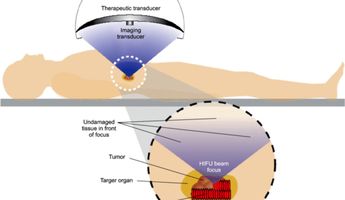
Find the best clinics for High-Intensity Focused Ultrasound (HIFU) in Greece
No clinics available
Indonesia offers the best prices Worldwide
Price: $ 56

- Home
- Greece
Compare Before & After Photos of _procedure_photos.phpHigh-Intensity Focused Ultrasound (HIFU)
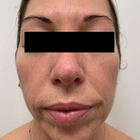
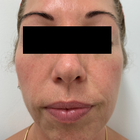
Front view
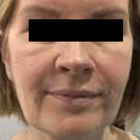
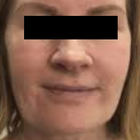
Front view
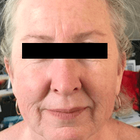
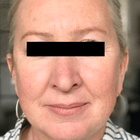
Front view
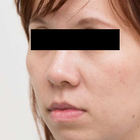
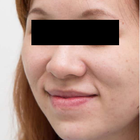
Front view
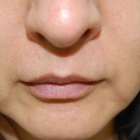
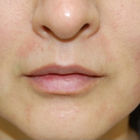
Front view
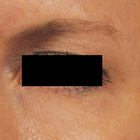
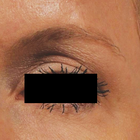
Front view
WHY US?
At Medijump, we're making medical easy. You can search, compare, discuss, and book your medical all in one place. We open the door to the best medical providers worldwide, saving you time and energy along the way, and it's all for FREE, no hidden fees, and no price markups guaranteed. So what are you waiting for?

Free

Best Price

Widest Selection

Risk-Free
What you need to know about High-Intensity Focused Ultrasound (HIFU) in Greece
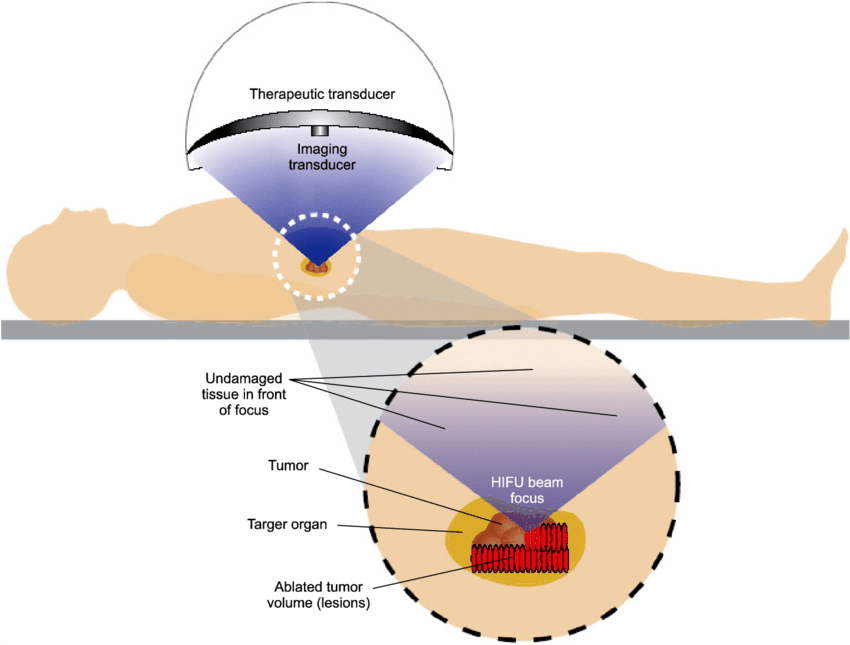
High intensity focussed ultrasound technique (HIFU) also known as focussed ultrasound surgery (FUS), uses non-ionizing ultrasound waves to heat up your body tissues. Temperature can be increased up to 70 to 90°C. These sound waves do not pass through air and bone. It is used for multi-purposes. It works to increase your blood, and lymph flow stimulates cell division and destroys tumor cells. It can also be used to treat a number of disorders including various types of cancer and uterine fibroids. Its use in the treatment of prostate cancer is gaining fame. It can also be used for cosmetic reasons, to reduce wrinkles, aging lines and to lift your loose skin. It is found to be most effective on jawline and cheeks. It should always be performed by the experts because the sonication of the wrong tissue can be dangerous. Also, there might be incomplete destruction of the tumor. Some areas of your body can not be sonicated as they are sensitive to sound waves, this should also be kept in mind while performing HIFU. It can only be used to treat localized cancer and tumors. Cancer which has spread cannot be cured through HIFU.
As HIFU is involved in the treatment of a number of diseases, before going through it, you may suffer from those diseases. These disorders include ovarian fibroids, different types of cancers, breast tumors, Parkinsonism, and a number of other neurological disabilities. You might have loose skin of face, neck, and chest. Vaginal laxity is also a problem. After HIFU, your tumors are destroyed, cancer cells are killed and diseases are cured. Your loose skin looks tightened and strengthened. Wrinkles and aging lines are gone. Vaginal and skin laxity are removed. You look younger than your actual age.
What does a High-Intensity Focused Ultrasound (HIFU) Procedure Involve?
The procedure begins with cleaning the area to be sonicated with alcohol swabs so that there are no germs and bacteria. In the next step, a gel is applied to your skin. Magnetic resonance imaging (MRI) or ultrasound is used to focus the exact tissue, organ or tumor that needs to be treated. The individual is sedated to avoid discomfort and pain during the procedure. After this, the procedure differs according to the purpose of HIFU. In general, an acoustic lens is used to focus sound waves on the targeted organ. The transducer device is used to emit sound waves. The sound waves propagate through the various layers of skin to reach the tumor to be destructed. When sound waves reach the tumor, heat is produced there increasing the temperature up to 90°C in 20 seconds only. This heat starts destroying the cancer cells there.
How Long Should I Stay in Greece for a High-Intensity Focused Ultrasound (HIFU) Procedure?
It is a 1 to 4 hours procedure. It depends upon the purpose for which HIFU is being performed. Generally, it is an outpatient procedure. You can be discharged from the hospital after the effects of the sedatives subside. You should plan to stay in Greece for at least 14 days after your Procedure, this will allow for the initial recovery and follow-up check-ups, etc.
What's the Recovery Time for High-Intensity Focused Ultrasound (HIFU) Procedures in Greece?
The recovery time differs and depends upon the purpose for which HIFU is being carried out. You may suffer from pain and discomfort for 3 to 4 days after the procedure. The soreness and swelling will subside in 2 to 3 weeks. It has less recovery time and has less invasive techniques approved by the FDA. The Non-ionizing radiations used in this technique are the least damaging.
What sort of Aftercare is Required for High-Intensity Focused Ultrasound (HIFU) Procedures in Greece?
Aftercare differs in accordance with the purpose for which HIFU is done. However, the following points should be kept in mind to look after yourself at home after being discharged:
- Visit your doctor on a regular basis.
- Do not drive home if you are still under the influence of sedatives.
- Eat healthily. Follow a diet plan made by an expert. It can help you recover faster.
- Take your medicines as and when prescribed by the doctor.
- Take a rest and give yourself time to recover.
- In the case of HIFU for cosmetic reasons, avoid contact with sunlight and wear sunscreen while going out.
- Do not rub or massage your skin.
- Look for something wrong. If you find any sign, visit your doctor immediately.
- In case of any discomfort, contact your physician. Do not go for self-medication.
What's the Success Rate of High-Intensity Focused Ultrasound (HIFU) Procedures in Greece?
HIFU has been found to be very successful in the treatment of most of the disorders. However, the success rate differs for each purpose. According to a study, the overall success rate for prostate cancer treatment was reported to be 84%. Cancer patients were divided into 3 groups. The high-risk group showed a low success rate. The intermediate group showed a higher success rate reaching 83.4% and the low-risk group showed the highest success rate of 94.2%. It is also found to be very effective and successful in treating skin laxity and uterine fibroids.
Are there Alternatives to High-Intensity Focused Ultrasound (HIFU) Procedures in Greece?
In actuality, HIFU itself is a non-surgical alternative to most of the surgeries. However, the following are some useful alternatives to HIFU:
- Dermal fillers: it is an alternative of HIFU for a facelift. Injections containing Botox, Restylane, etc. are given into your skin to make it look lifted and plump. Your skin looks wrinkle-free and you look younger than your age.
- Uterine artery embolization: this is a treatment for uterine fibroids. Arteries supplying the uterus are occluded by injecting an embolic agent into it. This cuts off blood supply to the fibroids causing them to shrink and ultimately die.
- Radical prostatectomy: also known as an open prostatectomy, entire prostate and seminal vesicle along with some lymph nodes in the pelvic area is surgically removed. Nerve damage is avoided to ensure erection and active sexual life afterward.
- Bilateral orchiectomy: in this surgery, both the testicles are surgically removed. This helps in treating prostate cancer.
- Brachytherapy: in this therapy, radioactive substances are directly inserted into the prostate gland. These are called seeds which give off radiations around the area where they were placed.
Whilst the information presented here has been accurately sourced and verified by a medical professional for its accuracy, it is still advised to consult with your doctor before pursuing a medical treatment at one of the listed medical providers
No Time?
Tell us what you're looking for and we'll reachout to the top clinics all at once
Enquire Now

Popular Procedures in Greece
Prices Start From $979

Prices Start From $714

Prices Start From $16

Prices Start From $28

Prices Start From $53

Recommended Medical Centers in Greece for procedures similar to High-Intensity Focused Ultrasound (HIFU)

- Interpreter services
- Translation service
- Religious facilities
- Medical records transfer
- Medical travel insurance
- Health insurance coordination
- TV in the room
- Safe in the room
- Phone in the room
- Private rooms for patients available

- Interpreter services
- Translation service
- Religious facilities
- Medical records transfer
- Medical travel insurance
- Health insurance coordination
- TV in the room
- Safe in the room
- Phone in the room
- Private rooms for patients available

- Interpreter services
- Translation service
- Religious facilities
- Medical records transfer
- Medical travel insurance
- Health insurance coordination
- TV in the room
- Safe in the room
- Phone in the room
- Private rooms for patients available

- Interpreter services
- Translation service
- Religious facilities
- Medical records transfer
- Medical travel insurance
- Health insurance coordination
- TV in the room
- Safe in the room
- Phone in the room
- Private rooms for patients available

- Interpreter services
- Translation service
- Religious facilities
- Medical records transfer
- Medical travel insurance
- Health insurance coordination
- TV in the room
- Safe in the room
- Phone in the room
- Private rooms for patients available

- Interpreter services
- Translation service
- Religious facilities
- Medical records transfer
- Medical travel insurance
- Health insurance coordination
- TV in the room
- Safe in the room
- Phone in the room
- Private rooms for patients available

- Interpreter services
- Translation service
- Religious facilities
- Medical records transfer
- Medical travel insurance
- Health insurance coordination
- TV in the room
- Safe in the room
- Phone in the room
- Private rooms for patients available

- Interpreter services
- Translation service
- Religious facilities
- Medical records transfer
- Medical travel insurance
- Health insurance coordination
- TV in the room
- Safe in the room
- Phone in the room
- Private rooms for patients available

- Interpreter services
- Translation service
- Religious facilities
- Medical records transfer
- Medical travel insurance
- Health insurance coordination
- TV in the room
- Safe in the room
- Phone in the room
- Private rooms for patients available

- Interpreter services
- Translation service
- Religious facilities
- Medical records transfer
- Medical travel insurance
- Health insurance coordination
- TV in the room
- Safe in the room
- Phone in the room
- Private rooms for patients available
High-Intensity Focused Ultrasound (HIFU) in and around Greece
About Greece
Located at the very bottom of the Balkan Peninsula, Greece is a mesmerizing blend of sun-drenched islands and historical marvels. Boasting approximately 2,000 islands, an impressive 170 among them are inhabited and teeming with life. Greece's geographical charm has been nowhere short of a magnet to travelling enthusiasts, pulling in a spectacular count of over 24 million wanderlust-struck visitors each passing year.
Greece turns out to be a preferred hotspot for a particular category of globe-trotters. Travelers come from the farthest stretches of the world seeking its array of top-tier beaches to soak up the sun, the warm ocean for an invigorating dip, the array of ancient relics for their history fix, and to immerse into an engaging culture. The universal allure of Greece, seemingly, never ceases to captivate the hearts of explorers worldwide.
The upward shift in Greece's status as a medical tourism hub has been quite noticeable in recent years. Medical tourists are being increasingly drawn to the country, a relative newcomer in the industry, due to a myriad of reasons. One of the core attractions is its health care system, which holds a high rank on the global scale. However, in spite of boasting of world-class standards, the medical services in Greece are pleasantly affordable. In fact, it flaunts some of the most pocket-friendly medical care prices across Europe and even globally.
The medical services that Greece provides run a comprehensive gamut. Cosmetic surgery and fertility treatments are particularly sought-after medical services, favoured by numerous medical tourists. Orthopedics also sees a consistent flow of patients, along with cardiac care procedures. The well-established oral and dental sector in Greece is another popular draw for people wanting to combine their medical treatments with a relaxing vacation. The availability of such diverse, high quality, yet affordable healthcare options certainly puts Greece on the map as a promising medical tourism destination.
Popular Parts of Greece
The captivating city of Athens, the crown jewel of Greece, presents a dazzling blend of antiquated splendor, enchanting landscapes, and a vibrant modern core. The capital prides itself in harboring an unparalleled assortment of Greek ruins and antiques. Prime among them is the Acropolis, an iconic ancient citadel perched on a rocky outcrop. The Greek Agora, a central public space in ancient Greek city-states, adds an extra charm to Athens’ archaeological grandeur.
On the other hand, the striking island of Santorini stands as another touristic magnet in Greece. Admired far and wide, it carries the reputation of being the most breathtaking island in the country. The enormous allure of Santorini with its distinctive architecture, caldera views, and famous sunsets, keeps it perennially embedded in the bucket lists of travelers worldwide. From the captivating capital of Athens to the charming Santorini, Greece exhibits alluring facets that are truly hard to resist.
It is best known for its unique landscape and cliff-top towns. While Santorini is the most spectacular, Mykonos is the most glamorous. It is noted for its classy seafood restaurants and boutique hotels. Some of the most famous attractions in Mykonos, besides its beaches, are Paraportiani and Little Venice.
Weather and Climate in Greece
Set on the Mediterranean, Greece experiences a climate that is typically balmy and sun-soaked throughout the year with a cycle of four distinct seasons. Summers, spanning June to August, bring about warm and agreeable temperatures. This peak season draws in a large number of tourists, making it an ideal time to take a dive into the azure seas.
As September ushers in the fall season, the weather across Greece turns cooler but largely stays clear. On the flip side, winters starting from December to February reveal a different picture. Coastal cities remain warm but the country's northern regions experience significantly lower temperatures, occasionally even witnessing snowfall.
As March marks the arrival of spring, the weather begins to warm up again, though evenings can retain a cool nip in the air. Each season has its unique charm and adds to the overall allure of Greece.
Getting around in Greece
Athens International Airport holds the distinction of being the largest and busiest hub for international air travel in Greece. This is typically the point of arrival and departure for a majority of international tourists exploring Greece. The extensive network of this airport caters to both domestic and international flights, connecting many global cities like Dubai, London, Moscow, and New York to the heart of Greece.
Among affordable means of transport, the ferry services stand out, particularly for travelling among the islands. They run on a frequent basis, with services especially ramped up during the sun-soaked summer months. For land travel, buses come across as largely comfortable and hassle-free, although the network is somewhat limited.
For intra-city travel within major Greek metropolises, the extensive network of buses and trolleybuses prove to be reliable options. Particularly in Athens, the capital city, the metro and tram systems offer additional efficient and cost-effective ways to explore the local attractions. Additionally, taxis, which are conveniently available quite everywhere, turn out to be extremely pocket-friendly. Whether hopping between islands or navigating city streets, Greece offers a range of transportation options to suit the needs and budgets of different travelers.
Tourist Visas in Greece
Greece is part of the Schengen Area, which means that citizens of most countries can travel to Greece without a visa for up to 90 days within a 180-day period.
Citizens of the following countries do not need a visa to visit Greece:
- All European Union citizens
- Citizens of Andorra, Iceland, Liechtenstein, Monaco, Norway, San Marino, Switzerland, and Vatican City
- Citizens of Australia, Canada, Japan, New Zealand, the United Kingdom, and the United States
Citizens of all other countries need to obtain a visa to visit Greece.
You can apply for a Greek tourist visa at the Greek embassy or consulate in your home country. The visa application process can vary depending on the country where you are applying, but there are some general requirements that all applicants must meet, such as having a valid passport, proof of onward travel, and proof of financial means.
Additional Information
- Local Currency: The official currency in Greece is the euro (€). €0.94 is equivalent to approximately US$1.
- Money & Payments: Reliable ATMs can be found easily in all cities and towns, particularly on the mainland. Major credit cards, such as MasterCard and Visa, are widely accepted. Tipping is expected in most places, usually around 5% to 10%. Make sure to tip in cash.
- Local Language: The most widely spoken language in Greece is Greek, which is the official language of the country. Most people in tourist areas and the younger generations can speak and understand some English, German, French, or Italian.
- Local Culture and Religion: Greek Orthodox Church is the largest religion in Greece, representing 90% of the total population. There are also small communities of Muslim, Roman Catholic, and Jewish.
- Public holidays: The most celebrated holidays in Greece include Easter, Apokreas (Carnival Season), and Saint’s day of the Virgin Mary, Ohi Day, Independence Day, and Christmas Day.
Popular Searches
- Plastic Surgery in Thailand
- Dental Implants in Thailand
- Hair Transplant in Thailand
- Breast Augmentation Thailand
- Gastric Sleeve in Thailand
- Gender Reassignment Surgery in Thailand
- Laser Hair Removal in Bangkok
- Botox in Bangkok
- Dermatology in Bangkok
- Breast Augmentation in Bangkok
- Coolsculpting in Bangkok
- Veneers in Turkey
- Hair Transplant in Turkey
- Rhinoplasty in Turkey
- Stem Cell Therapy in Mexico
- Rhinoplasty in Mexico
- Liposuction in Mexico
- Coolsculpting in Tijuana
- Rhinoplasty in Korea
- Scar Removal in Korea
- Gastric Sleeve in Turkey
- Bone Marrow Transplant in India
- Invisalign in Malaysia
- Plastic Surgery in the Dominican Republic
- Tummy Tuck in the Dominican Republic
- Plastic and Cosmetic Surgery in Poland
- Rhinoplasty in Poland
- Hair Implant in Poland
- Dental Implants in Poland
- IVF in Turkey